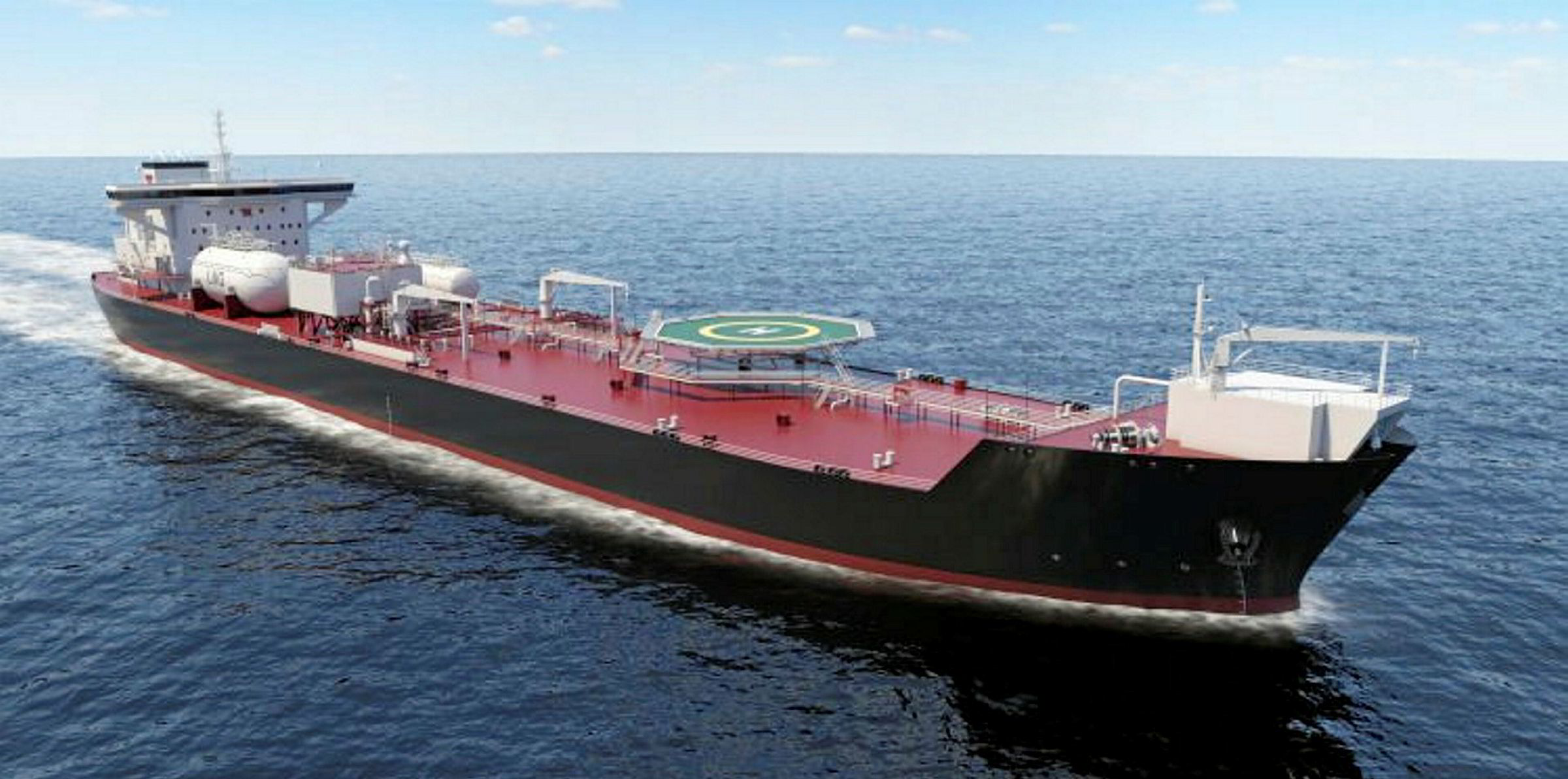How can a shipowner afford the investments to cut greenhouse gas emissions when many lenders are tightening their purse strings during the coronavirus crisis?
Enter the financiers that focus on environmental, social and corporate governance (ESG) criteria.
Since July, two public shipping companies have managed to secure sustainability loans with interest rates linked to their ESG performance. Both deals were hailed as the companies’ first such financing efforts.
Ardmore Shipping signed up for a two-year, $15m receivables facility from ABN Amro, which established a decarbonisation target for the New York-listed company in line with the International Maritime Organization’s industry goal.
“We already have pretty high standards regarding ESG,” Ardmore chief executive Anthony Gurnee told TradeWinds. “This was just a matter of helping us maintain and perhaps improve what we’re already doing.
“We're very active in evaluating and implementing steps to improve our fuel efficiency, technically and operationally.”
Oslo Axess-listed Klaveness Combination Carriers (KCC) took up a $60m term loan and revolving facility, with Nordea acting as coordinator and bookrunner.
The interest rate drops if the company can meet its own goal of cutting emissions per vessel by 15% from 2018 to 2022, among other decarbonisation targets.
“The most important thing is our commitment to meeting our decarbonisation and other ESG targets and, as a consequence, using a lot of resources throughout our organisation,” KCC chief executive Engebret Dahm said.
“Qualifying for and attracting funds from ESG investors and banks ... improves the possibility to secure long-term access to cost-competitive funding.”
Emergence of ESG investors
Lenders have become more conservative towards the shipping industry during the coronavirus crisis due to their low confidence in freight markets, Petrofin Research said in an interim report.
But the development came as ESG investors expanded their presence in the overall financing scene.
Global inflows into sustainability funds reached a record $71.1bn in the second quarter, partly due to growing investor interest in ESG issues, financial services firm Morningstar reported.
Nikos Benetis, director of financial institution advisory services at consultancy firm LOC, said: “Financiers are looking for the ESG credentials, both from who they invest in and for themselves."
“Shipping investors are very much obviously looking at the green alternatives and the assets of the future. Because they want to know that the assets will at least maintain their values in the foreseeable future.
“The finance industry is actually very good in wanting to understand and have these constructive discussions with owners on the technical aspects — something they wouldn't necessarily have done in the past,” Benetis said.
Green financing for oil players
The Ardmore and KCC cases were particularly eye-catching as both companies are involved in transporting fossil fuels, the combustion of which has long been considered to be the main driver of climate change.
Gurnee, whose company has a fleet of 25 product tankers, suggested that Ardmore would focus more on shipping chemicals and vegoils in the long run.
“In 20 years, I would expect we’re carrying a lot more chemicals, a lot more biofuels,” Gurnee said.
KCC has committed to using the loan to fund the seventh and eighth vessels in its series of 83,500-dwt newbuildings that can carry both dry and wet bulk cargoes. The ships are scheduled to be delivered from Jiangsu New Yangzijiang Shipbuilding next year.
“It is important to have a clear and thorough ESG story, to commit to specific targets and to be transparent on how your business is moving towards the set targets,” Dahm said.
“It will also increasingly be important to have a diversified business model, not relying only on transport of fossil fuels.”
Last year, Teekay Shuttle Tankers — a unit of Teekay Offshore Partners — raised $125m from selling what were labelled as green bonds, compared with the $150m target in the offer documents.

Despite reports of investor reticence at backing a carrier of crude, Teekay Offshore, which was later renamed Altera Infrastructure, insisted it was satisfied with the attempt.
“Investors showed great interest in the green credentials of this bond, and it created important discussions around the definition of green,” Altera finance director Terje Selle Rundberg said.
“It is easy for investors to exclude certain sectors, such as those related to fossil fuel, and this bond highlighted the fact that many of the dedicated green bond funds have exclusion criteria in place that makes them unable to invest in our part of the shipping sector.
“If the aim is to contribute to sustainable development, such exclusionary criteria may not be the best approach as it does not give them the possibility to assist certain sectors in the green transition.”
The insurance, whose proceeds were used to fund four 130,000-dwt LNG-fuelled newbuildings, was the first successful bond sale to ESG investors by a Western shipowner.
In general practice for green finance deals, specialist environmental consultancies such as Vigeo Eiris and Cicero provide so-called second opinions on projects to help interested investors gauge their environmental credentials.
However, the rating agencies do not establish criteria themselves. Instead, they set up their assessment methodologies based on some standards set by non-governmental organisations, industry and regulatory bodies.
Those include the Green Bond Principles by the International Capital Market Association, and the Green Loan Principles by the Loan Market Association, Asia Pacific Loan Market Association, and the Loan Syndications and Trading Association.
Recommendations of the Sustainable Accounting Standards Board and the Task Force on Climate-Related Financial Disclosure can also be referenced during their assessment process.
The Climate Bonds Initiative (CBI) has also announced a draft set of rules for the shipping industry that suggest crude tankers and LNG carriers do not deserve to tap into ESG financing.
This is mainly because the non-profit organisation sets its criteria across all industries based on the target to limit global temperature increase to 1.5C.
The draft criteria have prompted concerns from some shipping players. Of the $216bn climate bonds that have been issued in various sectors so far this year, $117bn are aligned with CBI standards.
“Shipping assets being dedicated to [the] transport of fossil fuel, irrespective of their environmental credentials, may be excluded from raising green bond finance as recently proposed by the CBI,” Klaveness Combination Carriers chief executive Engebret Dahm said.
“If approved, this may also have [a] negative impact on the ability of this part of the shipping business to raise funds from ESG equity-investors and banks.”
The CBI criteria are expected to be finalised by the end of September at the latest.
Matt Coyne contributed to this article.







